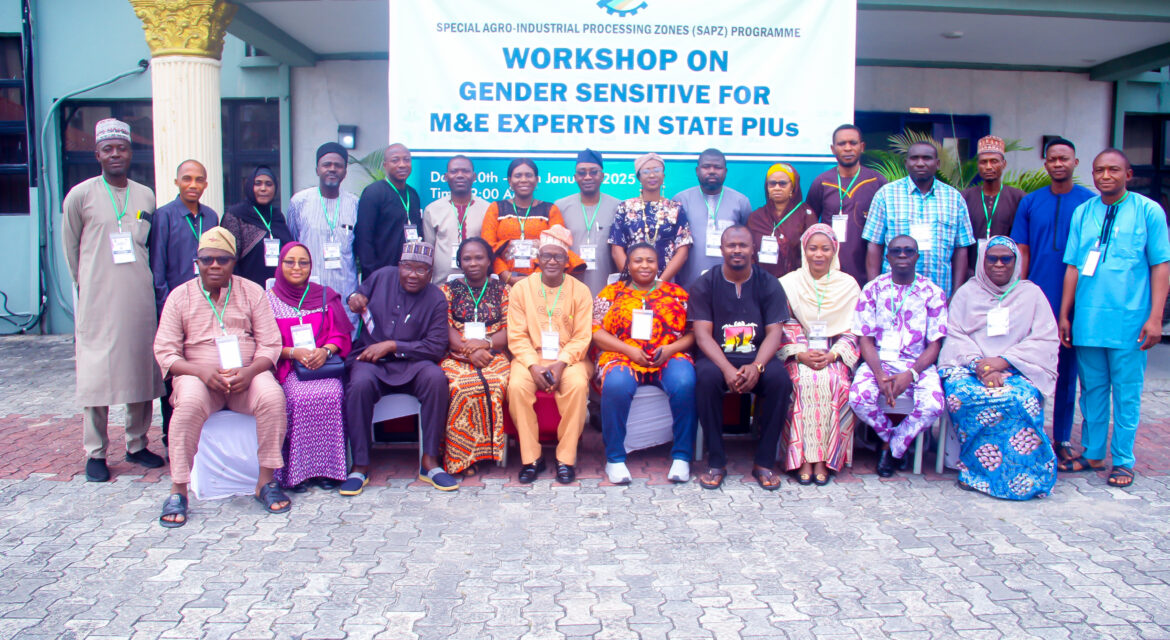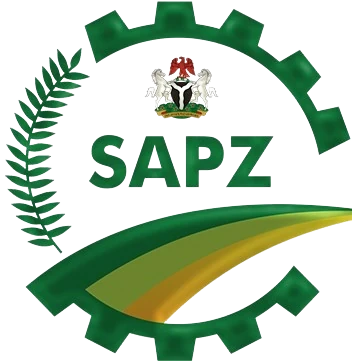The National Coordination Office of Special Agro-Industrial Processing Zones (SAPZ) initiative successfully organized a week-long training workshop on Monitoring and Evaluation (M&E) with a strong focus on gender sensitivity. The event, held at Monteccitto Hotel and Suites in Port Harcourt, Rivers State, ran from January 19 to January 25, 2025, and brought together M&E, Gender, and Technical Staff Officers from various SAPZ-participating states.
The workshop aimed to enhance the participants’ capacity to integrate gender perspectives into SAPZ’s M&E frameworks, ensuring inclusivity and equitable program implementation. The training covered a range of critical topics designed to deepen understanding and strengthen technical expertise in gender-responsive M&E practices.
Key Training Sessions
The workshop featured comprehensive discussions and hands-on exercises across multiple thematic areas, including:
• Comprehensive Guide to Concepts, Terminologies, and Gender Mainstreaming in M&E – This session introduced participants to fundamental M&E concepts, emphasizing gender-sensitive approaches and their importance in SAPZ projects.
• Integrating Gender Perspectives in SAPZ Monitoring and Evaluation Processes – Experts guided participants on how to incorporate gender dimensions into M&E frameworks to ensure equitable program outcomes.
• Promoting Gender Inclusivity in Program Implementation: Strategies and Practices – Attendees explored best practices for fostering gender inclusivity within SAPZ interventions, ensuring that both men and women benefit equally from agro-industrial projects.
• SAPZ Gender Perspectives: Results-Oriented M&E Indicators, Logical and Results Frameworks – This session focused on designing M&E indicators that effectively measure gender outcomes in agricultural programs.
• Group Exercise on Identification and Selection of Gender-Sensitive Indicators – Participants collaborated in groups to identify relevant gender-sensitive indicators, followed by a plenary session where they presented their findings and engaged in discussions.
Impact and Takeaways
The training provided a platform for participants to exchange ideas, enhance their skills, and gain practical insights into gender-sensitive M&E frameworks. By the end of the workshop, attendees had developed actionable strategies to integrate gender considerations into SAPZ projects effectively.
Speaking at the closing session, a senior SAPZ official commended the participants for their active engagement and emphasized the importance of gender-responsive monitoring in achieving sustainable agricultural transformation.
The SAPZ initiative continues to demonstrate its commitment to inclusive development by equipping stakeholders with the necessary tools to mainstream gender perspectives in all aspects of agro-industrial programming. With enhanced M&E capabilities, the participating states are now better positioned to track progress and ensure that SAPZ initiatives deliver impactful and gender-equitable results.

